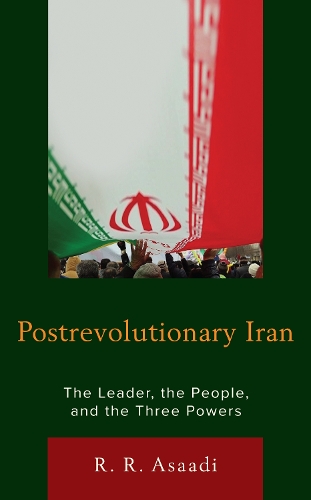
Postrevolutionary Iran: The Leader, The People, and the Three Powers
(Hardback)
Available Formats
Publishing Details
Postrevolutionary Iran: The Leader, The People, and the Three Powers
By (Author) R. R. Asaadi
Bloomsbury Publishing PLC
Lexington Books
19th April 2021
United States
Classifications
Professional and Scholarly
Non Fiction
International relations
Middle Eastern history
955.054
Physical Properties
Hardback
222
Width 166mm, Height 227mm, Spine 20mm
535g
Description
How is Iran governed Is the state accountable to its society How have Irans political institutions evolved since the 1979 revolution In short, Postrevolutionary Iran: the Leader, the People, and the Three Powers argues that the answers to these critical questions are neither as certain nor as fixed as much of the existing literature on this topic would lead one to believe. Part 1 of the book (chapters 13) analyzes what Irans Constitution refers to as the Three Powers: the executive, legislative, and judicial branches of government along with the unique mediating institutions of the Guardian and Expediency Councils. In each chapter, the author describes the unique structure and function of the governing institution as outlined in Iran's Constitution, then explains how the institution has evolved in practice over time. Several trends emerge from this analysis, including, among others, the growing influence of the military in politics, the expanding power of the Guardian Council at the expense of the parliament, and the widening asymmetry of executive power favoring the supreme leader at the expense of the president. In Part 2 of the book (chapters 46), the analytical focus shifts from Irans formal political institutions to consider instead the relationship between state and society more broadly, with chapters on Iran's military and economic structure, social movements, and public attitudes and the media. Finally, in the concluding chapter, the author offers a comprehensive view of what this analysis of Irans political institutions in theory and practice reveals about both the resilience of Irans political system and its capacity for meaningful change.
Reviews
Packed with an arsenal of dazzling facts and signposted by a comprehensive analysis, this book makes a decisive contribution to our understanding of contemporary Iran. A study with bravado and acumen on a pivotal country that is too often misrepresented.
-- Arshin Adib-Moghaddam, University of LondonAuthor Bio
R.R. Asaadi is instructor in the College of Urban and Public Affairs at Portland State University in Portland, Oregon.
